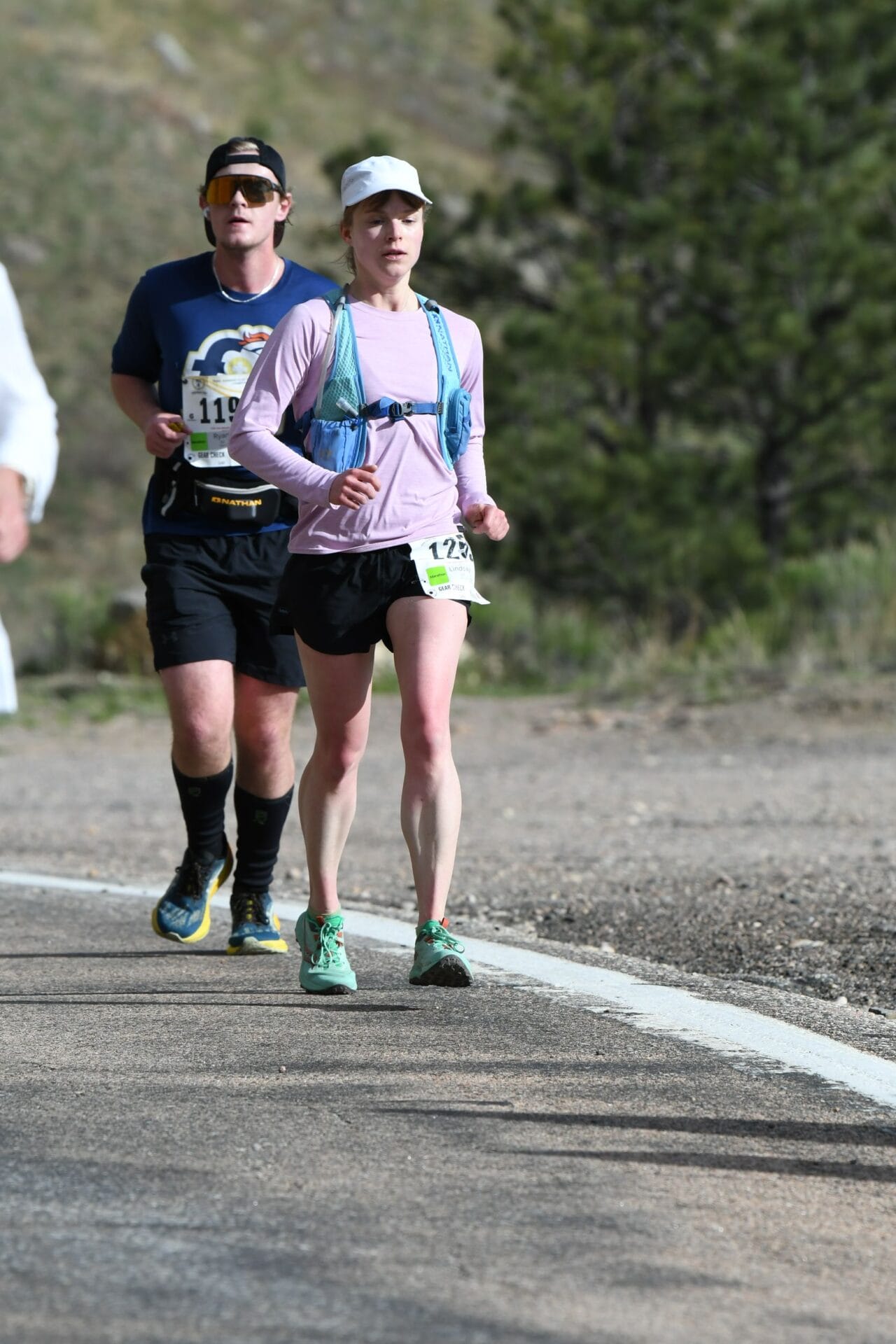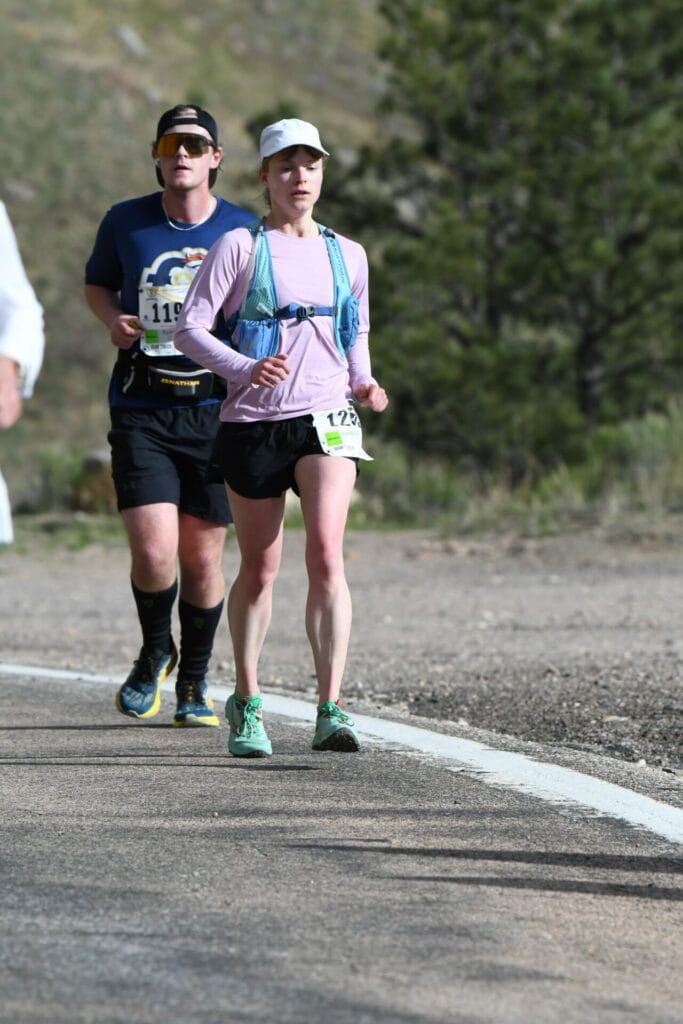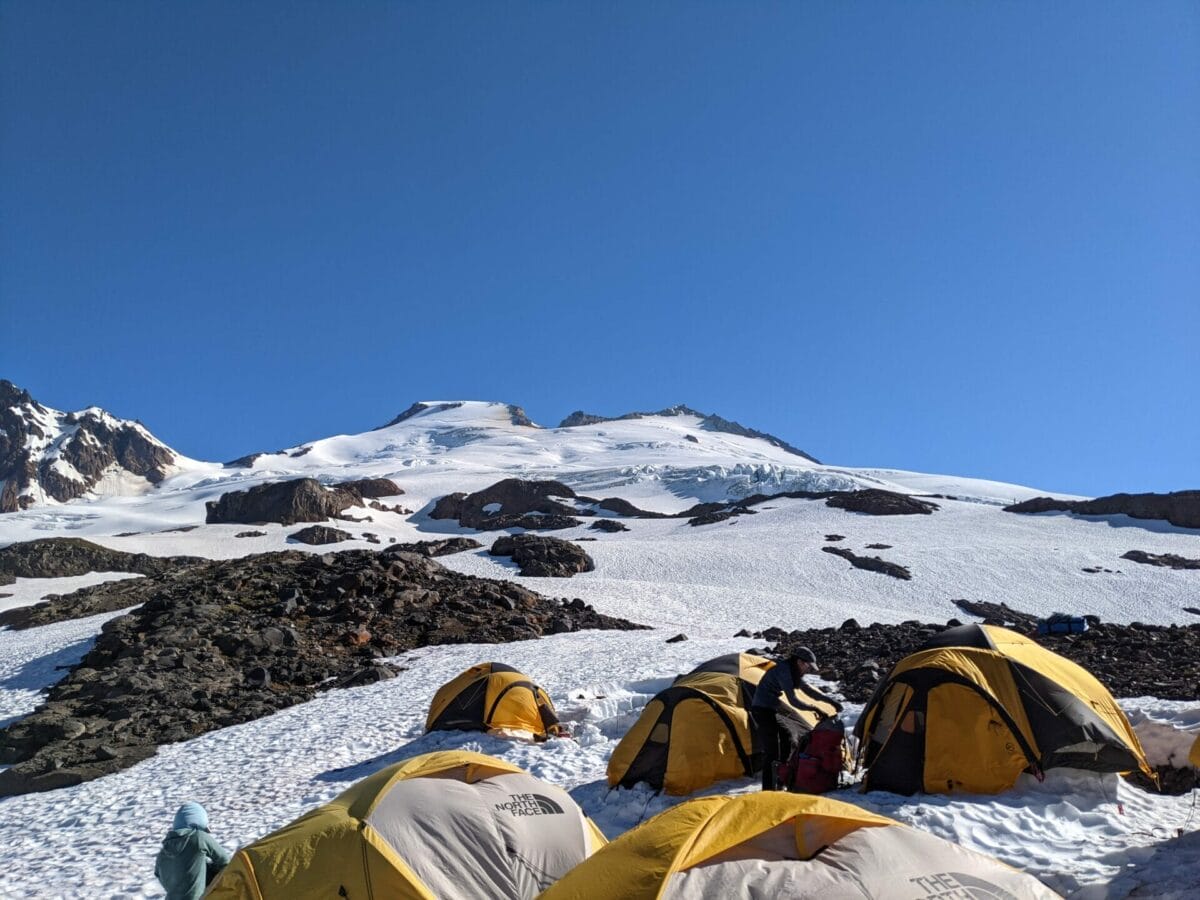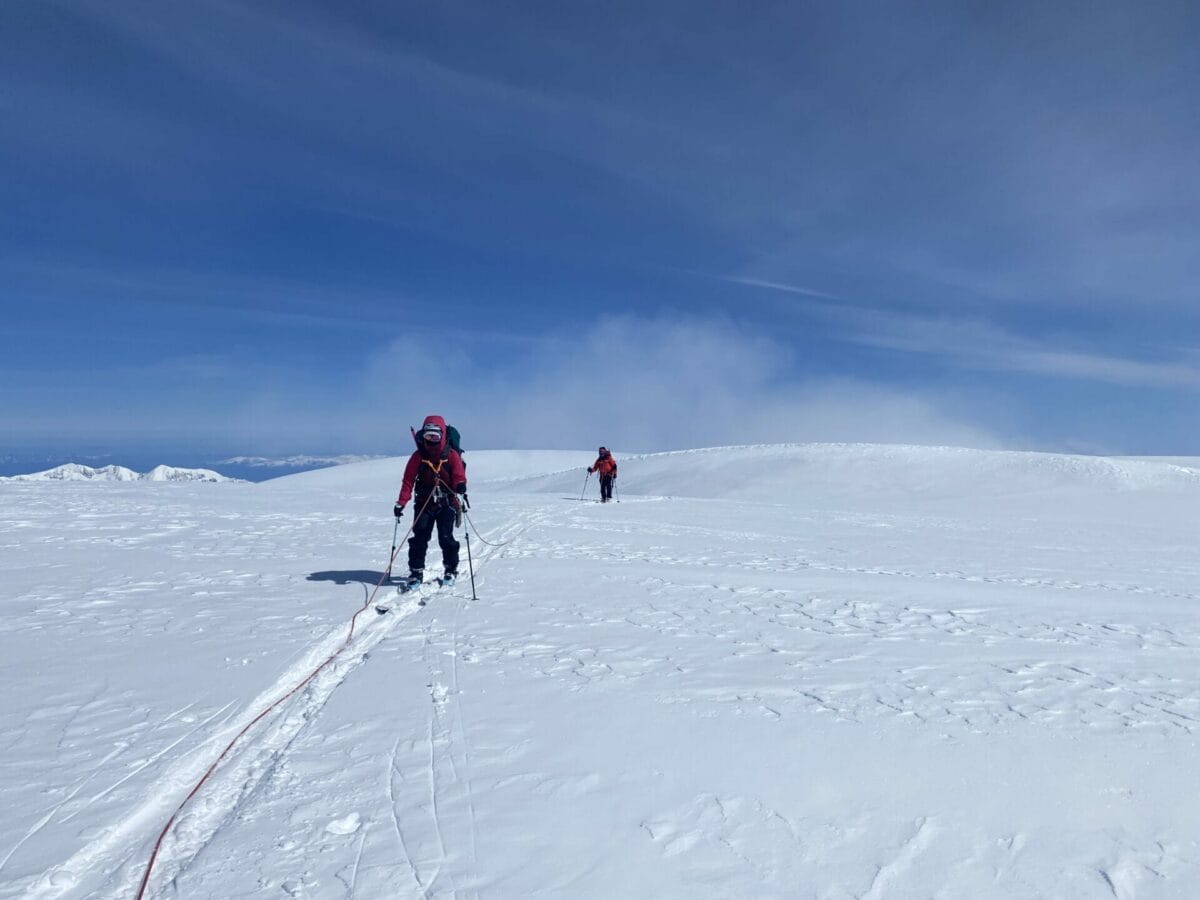

Back in May of this year (2024), I ran the Colorado Marathon in Fort Collins, Colorado. I intended to write a race recap post shortly after the marathon, but then life got hectic, and I pushed this blog to the back burner. However, I recently had more time to finally write this race recap blog, so here’s an overview of my Colorado Marathon experience, including some key nutrition takeaways!

The Colorado Marathon was my second marathon. I ran my first marathon about eight months before the Colorado Marathon when I ran Boulderthon in Boulder, CO. Prior to these marathons, I ran many half marathons and 10ks. You can read about my Boulderthon experience here. A unique aspect of the Colorado Marathon is that the course is largely downhill, making it a speedy course.
My training for the Colorado Marathon was unique this year because I mostly had to train on my treadmill in a cold garage (our basement, where I normally work out, was under construction, so that’s why I was in the garage).
I live at 8,000 feet in Colorado in a semi-rural neighborhood, where the hilly, icy roads aren’t exactly runner-friendly in the winter. At this elevation, it is often snowy outside until late April or May (in fact, this year, it snowed the weekend before the marathon). This is why I did much of my training on the treadmill, which was a practice in patience and discipline. Despite the suboptimal training situation, I still felt well-trained and prepared for the marathon.
On race day, I woke up around 4:30 am to eat breakfast and drink coffee (and make time for a bathroom stop) before catching the bus that shuttled runners up the canyon to the marathon start line. This time, I decided to have a smoothie for breakfast – it contained some coconut yogurt, protein powder, frozen cherries, and a banana.
While I know many marathoners prefer to eat just carbs before their races, I’ve always found that pairing carbs with protein in my pre-race meal gives me better energy and more stable blood sugar during the race.
During this race, I used UCAN Hydrate as my electrolyte product. Starting about 30 minutes into the race, I began to sip on the UCAN Hydrate every 10-15 minutes; this worked great for me and kept me well-hydrated. I also grabbed cups of plain water at the aid stations a few times.
For fuel, I chose to consume one Maurten Gel 100 Caf 100, one Spring Energy Orange Power Snack, and then half of a plain Maurten Gel 100. As a runner with a sensitive stomach, shoveling as many carbs as possible into my body during a race simply doesn’t work well. 🤢 As a result, I choose to eat a daily diet and train in a way that makes my body metabolically efficient.
Metabolic Efficiency Training is a method that helps your body become better at using fat and carbs for fuel, reducing the need for exogenous carbs (gels, Gu, etc.) during training and racing. If you’re interested in learning more about Metabolic Efficiency Training, check out my article on the topic here.
I maintained a steady, comfortable, yet brisk pace for 20 miles. At mile 21, I picked up my pace and ‘negatively split the marathon ‘, which means I ran the second half of the marathon faster than the first half. I passed so many people in the last 5-6 miles of the race that I lost track! My energy was great and my nutrition felt spot-on.
My goal for this marathon was to break 4 hours, which I’m sure seems like a low bar to some of you runners out there! However, it was a good goal for me, considering that my first marathon went slower than I’d hoped; I ran Boulderthon in 4 hours and 20 minutes and had to slow down quite a bit at the end due to gastrointestinal distress. Altogether, I think my training and nutrition plan for the Colorado Marathon worked great, as I hit my goal and ran 3:50:00 (this included the time I spent waiting in line for a porta-potty, too!).
Altogether, my main nutrition and hydration takeaways from this race were:
If you want to take a functional nutrition approach to optimize your health and running performance, I can help! Schedule a complimentary discovery call to learn how I can tailor a nutrition plan to your specific needs and goals.
The content provided on this nutrition blog is intended for informational and educational purposes only. It is not a substitute for professional medical advice, diagnosis, or treatment. Always seek the advice of your physician or other qualified health provider with any questions you may have regarding a medical condition. Never disregard professional medical advice or delay seeking it because of something you have read on this blog.
The information and recommendations presented here are based on general nutrition principles and may not be suitable for everyone. Individual dietary needs and health concerns vary, and what works for one person may not be appropriate for another.
I make every effort to provide accurate and up-to-date information, but the field of nutrition is constantly evolving, and new research may impact dietary recommendations. Therefore, I cannot guarantee the accuracy or completeness of the information presented on this blog.
If you have specific dietary or health concerns, please consult a qualified nutritionist or another healthcare professional for personalized guidance.
I empower others through nutrition to conquer their mountain adventures, drawing from my own experiences.
With a background in Biomedical Science and an M.S. in Human Nutrition, I’m a Certified Nutrition Specialist and Licensed Dietitian Nutritionist. My journey in functional medicine has equipped me to work alongside athletes and tackle complex health cases. As a passionate trail runner, backcountry skier, and backpacker, I strive to support others on their paths to peak performance and well-being.









Sign up for updates that come right to your inbox.